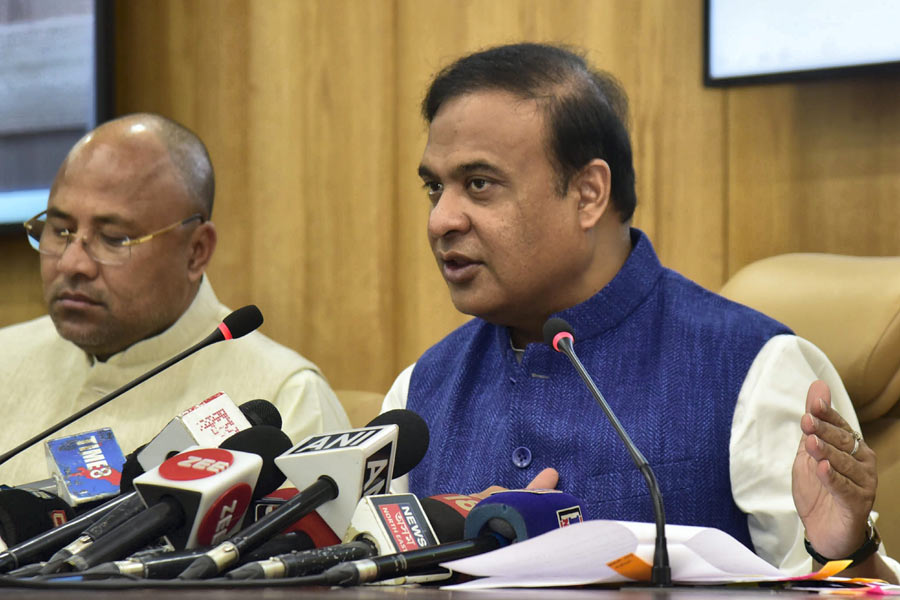Assam Chief Minister Himanta Biswa Sarma said with the implementation of the Citizenship (Amendment) Act, 2019, a clarity has emerged and the process to unlock the biometrics of those frozen during the updating of the National Register of Citizens (NRC) can begin.
''I will discuss the process with All Assam Students' Union (AASU) and other stakeholders and hopefully, a solution will be reached soon after the elections'', Sarma said at a press conference here on Friday.
The biometrics of around 27 lakh people in the state were locked and they were unable to get Aadhaar cards.
During the last two years, following the enactment of the law, ''we were doing the groundwork to dispel doubts raised about the CAA. Now it is clear that anybody who came after 2014 will not be given Indian citizenship'', he said.
Sarma said he was 100 per cent convinced that not even a single person will come to Assam through the CAA and ''only those who had applied for NRC will get citizenship''.
The CM admitted that blocking of the biometrics created problems in getting ration cards and employment and ''we will take up the matter and resolve it''.
He urged people not to be guided by emotion but by sound logic on the CAA issue.
''We have already captured the data by the NRC process and those not included in the list would have anyway got citizenship through the Foreigners' Tribunal, if not the CAA'', Sarma said.
The CM further said he expects around six lakh people, three lakh each from Barak and Brahmaputra valleys, will get citizenship and not 20 lakh as being spread by certain sections.
The Supreme Court-monitored Assam’s National Register Citizens (NRC) published on August 31, 2019, which excluded 19 lakh of the 3.4 crore applicants, was a fallout of the Assam Accord signed in 1985 which had the provision for "detection and deportation" of all persons who entered the state from Bangladesh post-March 24, 1971.
The NRC and CAA are not linked in the rest of the country but in Assam, the only state engaged in NRC updating exercise, a sizable population of Bengali Hindus were left out due to lack of proper legacy data documents or legacy data.
With the notification of CAA rules, the Centre will now start granting Indian nationality to persecuted non-Muslim migrants from Bangladesh, Pakistan and Afghanistan who came to India till December 31, 2014. These include Hindus, Sikhs, Jains, Buddhists, Parsis and Christians.
The CAA was passed in December 2019 and subsequently got the president's assent but there were protests against it in several parts of the country, including Assam where five persons died in the violence.
Except for the headline, this story has not been edited by The Telegraph Online staff and has been published from a syndicated feed.











